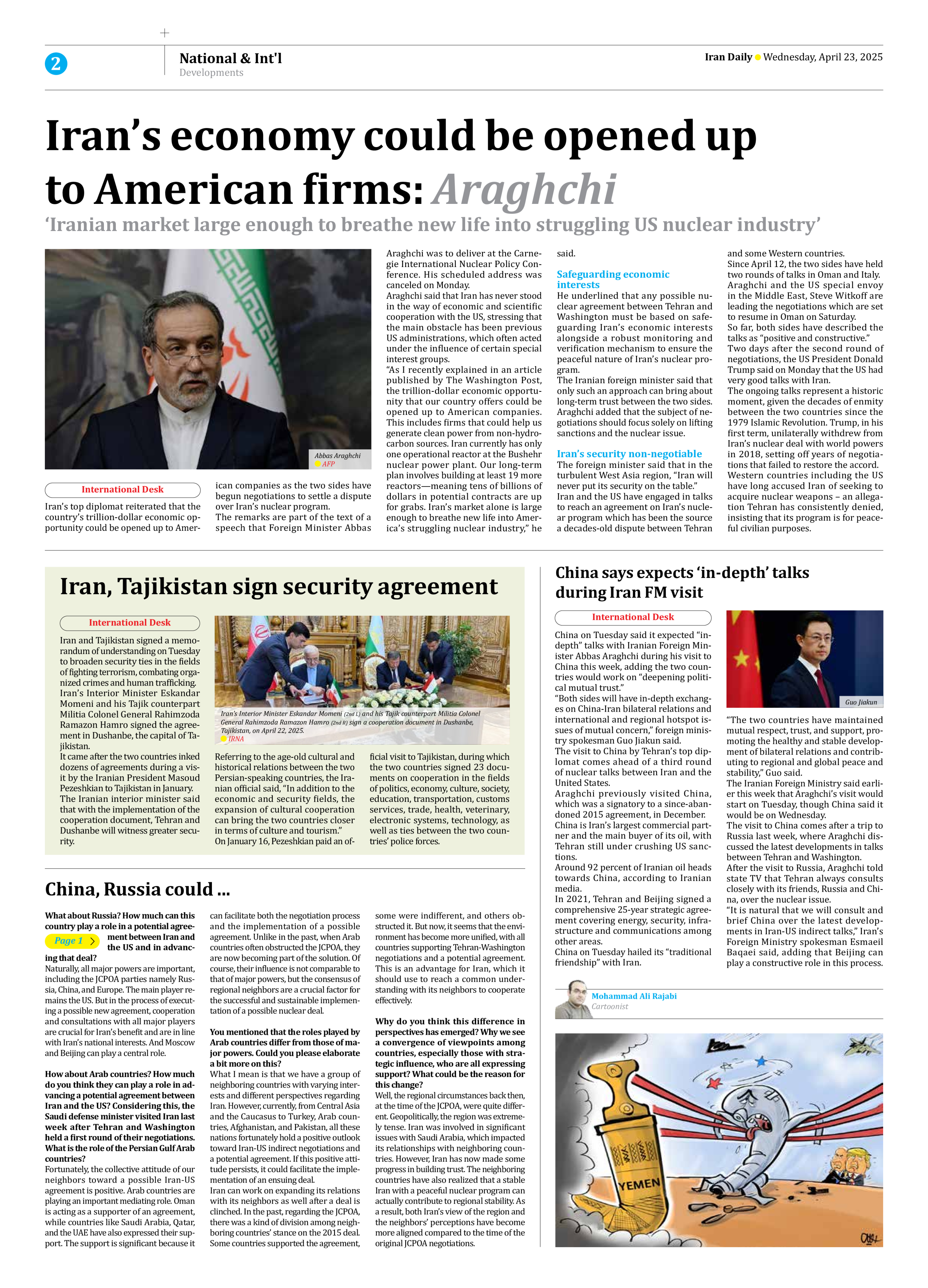
China, Russia could ...
Page 1
What about Russia? How much can this country play a role in a potential agreement between Iran and the US and in advancing that deal?
Naturally, all major powers are important, including the JCPOA parties namely Russia, China, and Europe. The main player remains the US. But in the process of executing a possible new agreement, cooperation and consultations with all major players are crucial for Iran’s benefit and are in line with Iran’s national interests. And Moscow and Beijing can play a central role.
How about Arab countries? How much do you think they can play a role in advancing a potential agreement between Iran and the US? Considering this, the Saudi defense minister visited Iran last week after Tehran and Washington held a first round of their negotiations. What is the role of the Persian Gulf Arab countries?
Fortunately, the collective attitude of our neighbors toward a possible Iran-US agreement is positive. Arab countries are playing an important mediating role. Oman is acting as a supporter of an agreement, while countries like Saudi Arabia, Qatar, and the UAE have also expressed their support. The support is significant because it can facilitate both the negotiation process and the implementation of a possible agreement. Unlike in the past, when Arab countries often obstructed the JCPOA, they are now becoming part of the solution. Of course, their influence is not comparable to that of major powers, but the consensus of regional neighbors are a crucial factor for the successful and sustainable implementation of a possible nuclear deal.
You mentioned that the roles played by Arab countries differ from those of major powers. Could you please elaborate a bit more on this?
What I mean is that we have a group of neighboring countries with varying interests and different perspectives regarding Iran. However, currently, from Central Asia and the Caucasus to Turkey, Arab countries, Afghanistan, and Pakistan, all these nations fortunately hold a positive outlook toward Iran-US indirect negotiations and a potential agreement. If this positive attitude persists, it could facilitate the implementation of an ensuing deal.
Iran can work on expanding its relations with its neighbors as well after a deal is clinched. In the past, regarding the JCPOA, there was a kind of division among neighboring countries’ stance on the 2015 deal. Some countries supported the agreement, some were indifferent, and others obstructed it. But now, it seems that the environment has become more unified, with all countries supporting Tehran-Washington negotiations and a potential agreement. This is an advantage for Iran, which it should use to reach a common understanding with its neighbors to cooperate effectively.
Why do you think this difference in perspectives has emerged? Why we see a convergence of viewpoints among countries, especially those with strategic influence, who are all expressing support? What could be the reason for this change?
Well, the regional circumstances back then, at the time of the JCPOA, were quite different. Geopolitically, the region was extremely tense. Iran was involved in significant issues with Saudi Arabia, which impacted its relationships with neighboring countries. However, Iran has now made some progress in building trust. The neighboring countries have also realized that a stable Iran with a peaceful nuclear program can actually contribute to regional stability. As a result, both Iran’s view of the region and the neighbors’ perceptions have become more aligned compared to the time of the original JCPOA negotiations.







